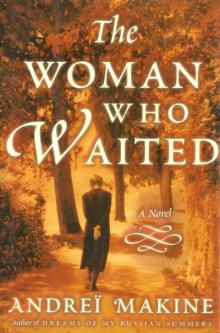Read The Woman Who Waited Storyline:
A moving, utterly captivating love story: Romeo and Juliet as if told by Chekhov or Dostoevsky. In a remote Russian village a woman waits, as she has waited for almost three decades, for the man she loves to return. Near the end of World War II, nineteen-year-old Boris Koptek left the village to join the Russian army, swearing to the sixteen-year-old love of his life, Vera, that as soon as he returned they would marry. Young Boris, who with his engineering battalion fought his way almost to Berlin, was reported killed in action crossing the Spree River. But Vera refuses to believe he is dead, and each day, all these years later, faithfully awaits his return. Then one day the narrator arrives in the village, a twenty-six-year-old native of Leningrad, who is fascinated both by the still-beautiful woman and her exemplary story, and little by little he falls madly in love with her. But how can he compete with a ghost that will not die? Beautifully, delicately, but always powerfully, Andreï Makine delineates in masterly prose the movements and madness that constitute the dance of pure love.From Publishers WeeklyA sensuously styled, elegiac tale set in the mid-1970s, Makine's latest opens a window onto a generation of post-WWII Russian widows through one mysterious woman's vigil. In the village of Mirnoe on the northern White Sea coast, a young male journalist researching local customs meets an intriguing woman who has waited 30 years for her fiancé, reported killed, to return from the war. Just 16 when her lover was conscripted, Vera devotes herself selflessly to the care of the town's many war widows: she rows out to tend to the widows' graves on a nearby island and lives alone, ever watchful. The narrator, writing in retrospect but 26 at the time of the story, was educated in St. Petersburg; ironic and arrogant, he believes he has Vera's selflessness figured out as a prosaic, idealized vision of womanhood. And yet, he learns, Vera has studied advanced linguistics in St. Petersburg, and returned to Mirnoe by choice. The closer he gets to her, the more he is shamed in the face of her towering presence. Makine, now almost 50 and the author of eight other novels (including Dreams of My Russian Summers), lives in Paris; he transforms a very simple premise into a richly textured story of love and loss. (Mar.) Copyright © Reed Business Information, a division of Reed Elsevier Inc. All rights reserved. From BooklistThis wonderful novel is set in what is known as the Soviet period of stagnation--the 1970s, or late Brezhnev era. The university-educated narrator wistfully looks back on a few months in mid-decade when he left his cynical and jaded friends in Leningrad to travel to a small provincial town near the White Sea. Ostensibly writing about provincial folk customs, but also hoping to gather material for an anti-Soviet satire, he instead meets Vera, a woman much older than he who has waited 30 years for her lover to return from World War II. Makine, whose previous novels include Dreams of My Russian Summers (1997), presents an elegantly enigmatic tale that explores a number of themes that may seem a little outdated to some readers but which meld seamlessly with the novel's mise-en-scene, including devotion, duty, and the contradiction between perception and truth. The latter is driven home by the complicated relationship between the narrator and Vera, and the brief moment when he all but morphs into her long-lost lover. Frank CasoCopyright © American Library Association. All rights reservedPages of The Woman Who Waited :
